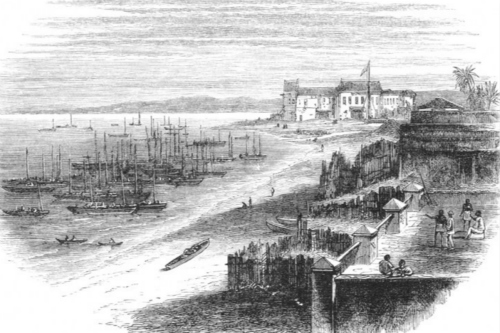
Message from Ms. Audrey Azoulay, Director-General of UNESCO, on the Occasion of International Day for the Remembrance of the Slave Trade and Its Abolition文章源自英文巴士-https://www.en84.com/5733.html
联合国教科文组织总干事奥德蕾·阿祖莱贩卖黑奴及其废除国际纪念日致辞文章源自英文巴士-https://www.en84.com/5733.html
文章源自英文巴士-https://www.en84.com/5733.html
23 August 2018文章源自英文巴士-https://www.en84.com/5733.html
2018年8月23日文章源自英文巴士-https://www.en84.com/5733.html
文章源自英文巴士-https://www.en84.com/5733.html
On the night of 22 to 23 August 1791, in the western part of the island of Saint-Domingue, then French colony of the West Indies, an uprising of slaves took place, which would mark a turning point in the tragic history of the slave trade. The war that ensued culminated in 1804 in the independence of that part of the island, which took the name of Haiti, and led to the recognition of the equal rights of all its inhabitants. The shock wave caused by this historic event contributed greatly during the century to the movement of abolition and the dismantling of the slave order.文章源自英文巴士-https://www.en84.com/5733.html
文章源自英文巴士-https://www.en84.com/5733.html
1791年8月22日夜至23日,在时为法国殖民地的西印度群岛圣多明各岛西部爆发的一场奴隶起义,形成了黑奴贸易悲惨历史的转折点。随后引发的战争使该岛这一部分在1804年以海地之名宣告独立,并使其所有居民的平等权利获得承认。在整整一个世纪期间,这一历史事件对废奴运动和奴隶制瓦解产生了重大影响。文章源自英文巴士-https://www.en84.com/5733.html
文章源自英文巴士-https://www.en84.com/5733.html
The universality of that struggle for freedom and dignity conducted by the slaves of Saint-Domingue led UNESCO to establish an International Day for the Remembrance of the Slave Trade and its Abolition, and to choose the symbolic date of 23 August for its observance.
正是因为圣多明各奴隶这次争取自由和尊严的斗争具有普遍性意义,促使教科文组织设立了贩卖黑奴及其废除国际纪念日,并选择8月23日这一具有象征意义的日子庆祝该纪念日。
Since 1998, this International Day is an ideal opportunity to deepen reflection on the legacy of the history of slavery and the need to explore its memory. The Day also helps to guard against racial prejudices that have been developed to justify slavery and continue to fuel everyday racism and discrimination against people of African descent.
自1998年以来,这一国际日提供了一个独特的机会,可以深入思考奴隶制历史的遗留问题以及挖掘其记忆的必要性。这一国际日还使我们对种族偏见保持警醒,这种偏见旨在为奴隶制辩护,并继续助长日常的种族主义现象和对非洲人后裔的歧视。
Since 2001, trafficking and slavery have been recognized by the international community as crimes against humanity. Yet these scourges resurface at regular intervals in different ways and in different places. That is why a better knowledge of the history of the slave trade and slavery is essential for a better understanding of the emergence of new forms of slavery, in order to prevent them.
自2001年起,国际社会承认贩卖奴隶和奴隶制为危害人类罪。然而,这些祸患仍会以不同形式在不同地点定期出现。因此,为了更好地了解奴隶制的新形式并努力防止它们出现,必须更好地了解贩卖奴隶和奴隶制的历史。
The Slave Route Project, launched by UNESCO in 1994, has made it possible to identify the ethical, cultural and socio-political issues of this painful history. By developing a multidisciplinary approach, which links historical, memorial, creative, educational and heritage dimensions, this project has contributed to enriching our knowledge of the slave trade and spreading a culture of peace.
教科文组织于1994年发起的《奴隶之路》项目,让人们认识到这段痛苦历史的伦理、文化和社会政治挑战。该项目开发了涉及历史、记忆、创新、教育和遗产等方面的多学科方法,有助于我们深入了解贩卖奴隶的历史并传播和平文化。
On this International Day, UNESCO invites everyone, including public authorities, civil society, historians, researchers and ordinary citizens, to mobilize in order to raise awareness about this history that we share and to oppose all forms of modern slavery.
值此国际日之际,教科文组织邀请每一个人、各级政府、民间社会、历史学家、研究人员、普通公民一起动员起来,以增进对我们共有的这段历史的了解并反对一切形式的现代奴隶制。
俄文、法文、西文、阿文版:https://pan.baidu.com/s/1X6kTHTwwEAzamGOguEUkdw

